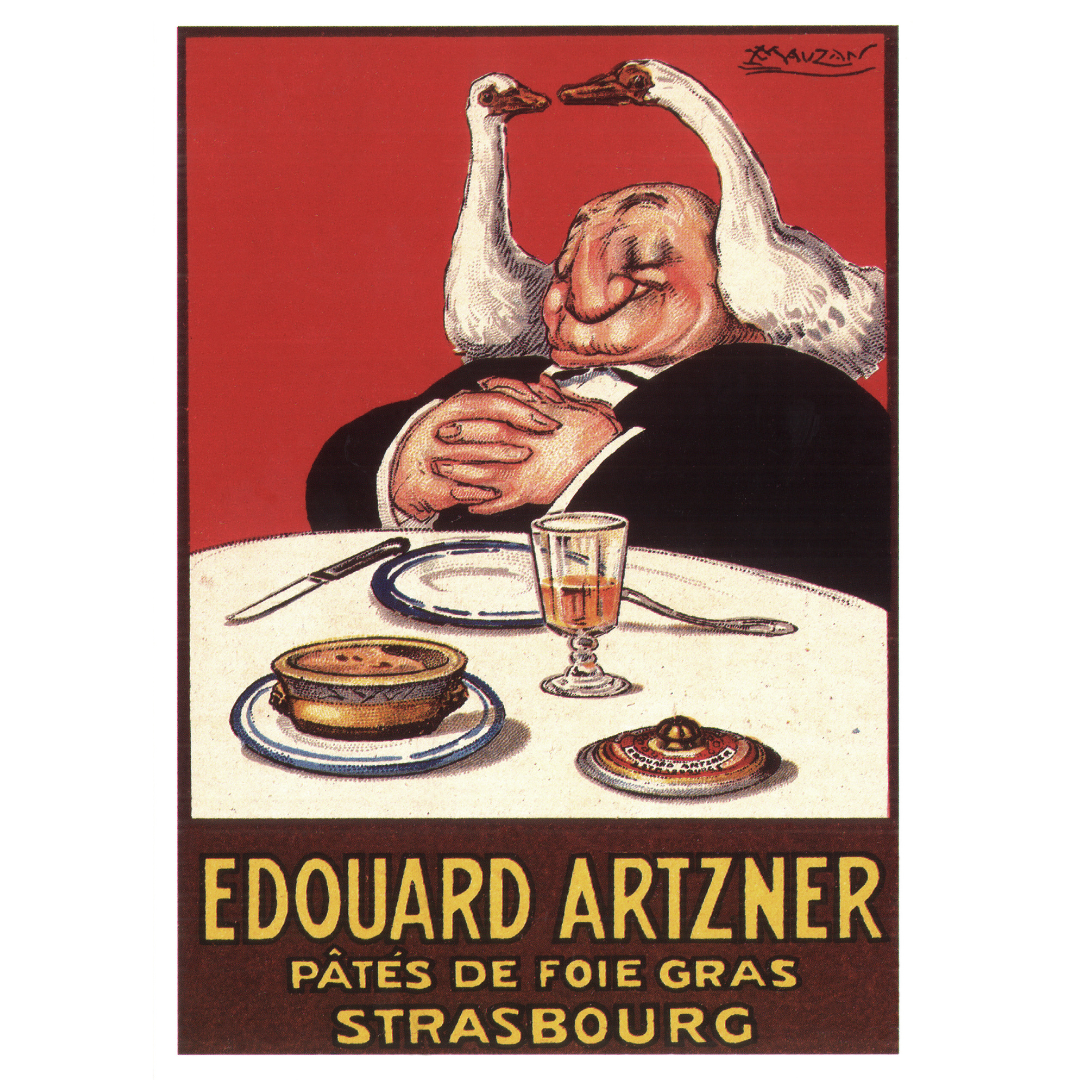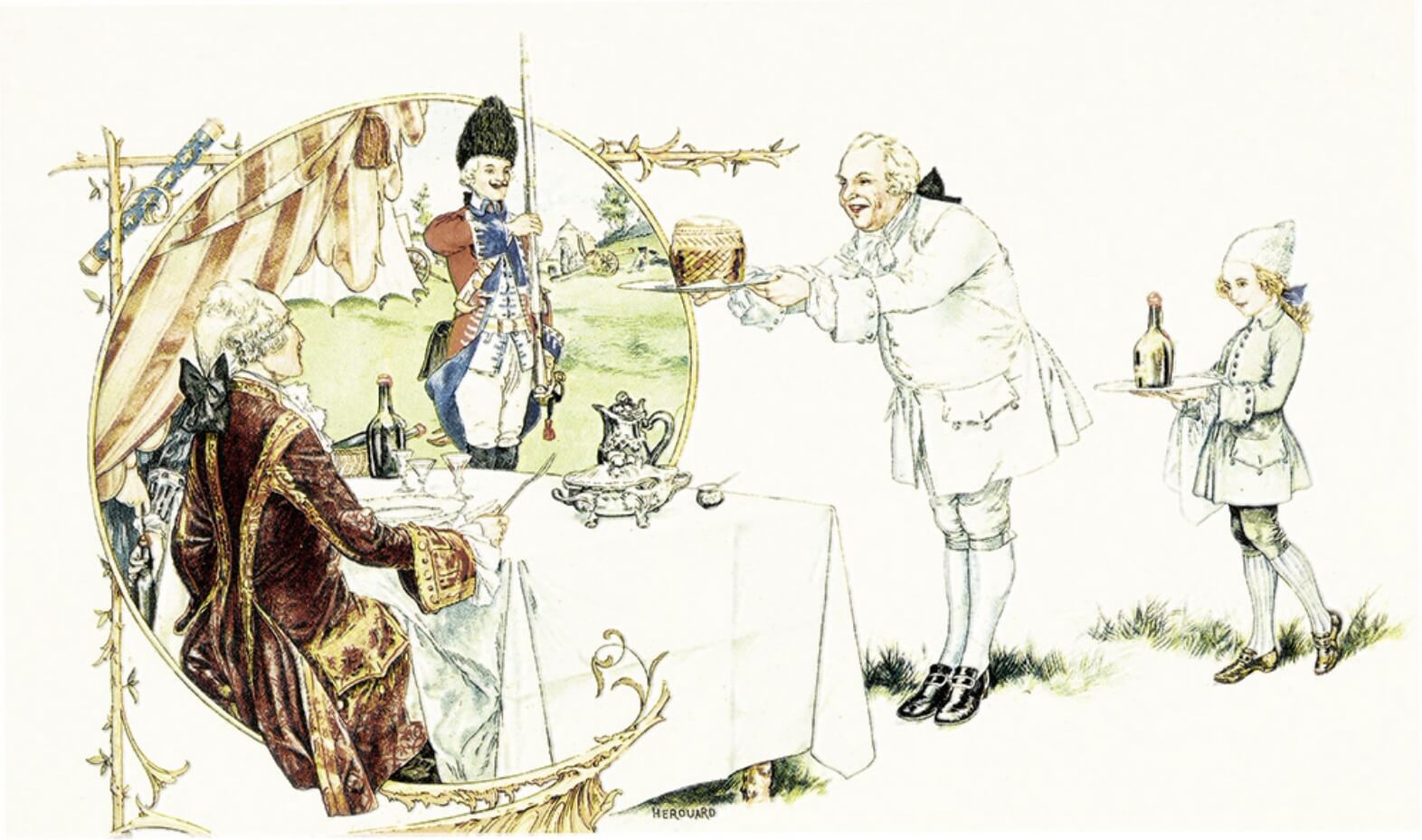
Our History
Our products are tasted in more than 35 countries and our house, now located in Schiltigheim, provides a livelihood for 80 families. Learn more about our history.
Beginning of
18th century
Birth of a great Foie Gras from Alsace.
1803
Philippe Edouard Artzner opens his first shop where they make Foie Gras pâté.
1850
His son Edouard cooks the first Goose Foies in terracotta terrine dishes.
At the time of Bonaparte's accession, there were two foie gras manufacturers in Strasbourg. In 1803, a newcomer, Philippe Artzner, a pastry chef and caterer by trade, opened a shop flanked by a foie gras production facility in the city centre. He developed tasty recipes and became a true creator of gastronomic trends.
Around 1850 his son Edouard, who took over the business, was the first to cook goose livers in terracotta terrines. Cooked slowly and at a low temperature, the foie gras preserves all its qualities and flavour.
"After cooling, Edouard Artzner covers these pâtés with a layer of goose fat, which guarantees a conservation period of 2 to 3 weeks, a revolution for the time!"
The considerable success of this new packaging with the most prestigious customers heralded the real development of Foie Gras in France and throughout the world.
This know-how was to be preserved by Artzner throughout the centuries and beyond all fashions.

Today, our Chefs continue the tradition by using this know-how to prepare foies gras, but also a whole range of fine specialities: goose and duck breasts, quail legs, fine pâtés and terrines...
A whole gastronomic art dedicated to the satisfaction of the most demanding gourmets!
Our values, our commitments
The high standards with which we conceive our profession are reflected in the quality of the products we offer for tasting, but also in the values that motivate all of our employees.
Based on the truth that good products are only made from good raw materials, we are particularly vigilant in respecting animal welfare. We require our partner suppliers (breeders and slaughterhouses) to respect the Euro Foie Gras Charter (European Federation of Foie Gras Producing Countries), which sets out the commitments that breeders must follow, in particular:
- Animals must be fed in the right quantity and quality. We only accept animals fed without GMOs.
- Palmipeds have permanent and free access to drinking water.
- Animals must have enough space to move around.
- Animals must have thermal comfort
Product quality is another of the values that guide our commitment. We take great care in selecting our raw materials. All the foies gras delivered to us pass through the hands of our chief sorters who, after an initial selection in the slaughterhouse, again select the best qualities for our excellent products.
Ensuring optimal and constant quality is the watchword that governs our daily work, which is why we pay particular attention to the training of our chefs. There is a very strong tradition in the House: the transmission of know-how from one chef to another. Since 1803, if our recipes have never ceased to improve while retaining their authenticity, it is thanks to this oral tradition that has endured.
The aim of our mission is to achieve the best possible satisfaction:
- Satisfaction of our customers, in terms of the products we deliver to you, in terms of tracking orders and deliveries, and of course in terms of the quality delivered
- Satisfaction of our employees for the pride they feel in working for our beautiful House since satisfied customers are the result of work done to perfection!
Gender equality index
At Edouard Artzner, we are committed to advancing equality in all areas of the company, particularly between women and men. Thus, we are working on the pay gap (score obtained: 33/40), the share of women in the highest paid positions (score obtained: 10/10) and the difference in the rate of increases between men and women (score obtained: 35/35). Our index this year is 92 points/100 (an index below 75 points requires corrective measures).
